1984
The 1984 season was the moment that the turnaround began. The Mets got off to an unusually strong start, but I could only feel so much optimism. Fool me once, etc. But as the season went on, and the Mets remained in the heat of the divisional race, it was clear that there was something different about this team.
Some major changes had an immediate and dramatic impact. Reigning Rookie Of The Year Darryl Strawberry and future team captain Keith Hernandez were with the club for the entire year. Hernandez in particular was crucial, as he got over his initial disappointment over being traded to New York and committed to the franchise long term. Just as important was the hiring of a new manager. Davey Johnson moved up from Triple-A to the big club and he proved to be a transformational choice in more ways than one.
First off, he had already managed the franchise’s young talent in the minor leagues, so he was familiar with them and knew whom he could count on. For example, Wally Backman had initially come up in 1982, but had a major sophomore slump and spent the bulk of ‘83 in the minors. All signs pointed to his being a bust, but Johnson saw something in him and gave him a second chance, which he capitalized on and became one of the glue guys over the next few seasons. There was a lot of talk upon Johnson’s hiring about his use of a computer to assist him in decision making. Years before the analytics revolution, he was using data to give his team a hidden advantage.
More than anything, the dramatic improvement of the team was due to the commitment to young pitchers. The year began with Mike Torrez and Craig Swan in the rotation, along with Dick Tidrow as a bullpen piece. It was clear early on that all 3 were on their last legs; all would be gone before the summer. By midseason Sid Fernandez would be promoted to the big leagues and Bruce Berenyi would be acquired in a trade, to add to the rotation that already featured Ron Darling and Walt Terrell. Oh yeah, there was also another guy.
Dwight Gooden’s rise was swift. Still only 19 years old on Opening Day, Johnson had to convince the front office that he was in fact ready to jump from A-Ball and contribute immediately. He did more than just contribute; he was dominate from day 1, easily winning the Rookie Of The Year award, and introducing himself to the country by striking out the side in his first inning in that year’s All Star Game. The best would be yet to come.
I suppose I can’t go through this era without mentioning Doug Sisk. It’s safe to say that if you survey fans to rank their favorite players on the ‘86 club he would fall very low on that list. Memories can be tricky; my recollection is that in almost every outing he would walk the bases loaded and then proceed to strike out the side. In this case, reality isn’t that far from perception - his BB/K ratio in 1984 was 54/32! Yikes. And yet, somehow it worked. He shared the closer role with Jesse Orosco, and despite the major agita he often caused with that tightrope walk, he was largely successful in his role for a couple of years. By 1986 he was less effective and had moved to the back of the bullpen line, but he’s still got a ring.
It was brought to my attention that in the last 2 postings I failed to acknowledge Billy Beane’s presence in the future stars photo. Well, here he is for a third consecutive year, still awaiting his major league breakthrough. OK, the stardom that was predicted for Beane never happened, but there are a couple of future ‘86 heroes seen here.
The Mets were in a tight battle with the similarly upstart Chicago Cubs in the NL East for much of the summer. The Cubs eventually dealt the Mets a knockout blow in August, but the Mets did get off the mat and played well enough the rest of the way to finish a strong second place. This was clearly a team of the future, they just needed to strengthen up the lineup somewhat. Maybe add a cleanup hitter, preferably in a position that was a weak part of the club, such as catcher. Sure hope there’s a guy like that available in the offseason.
The SNL Sliding Doors Scenario
Saturday Night Live has long been an institution, sometimes to its detriment. As you may know, it just completed its 48th season; the premiere of milestone season #50 is only around 13 months or so away. It’s virtually impossible to envision a television landscape without SNL in its familiar slot, but there were in fact several occasions in the show’s early years in which its future was very much in doubt. It’s enough to make one wonder how different the comedy landscape would look if NBC had ever pulled the plug.
I know people love to dismiss the show - it’s too complacent, it’s not adventurous anymore, there are more creative sketch shows found elsewhere, and so on. Fair enough, but also keep in mind that any complaint about the show was also apparent during whichever period you want to classify as the glory years. The show has always relied on catch phrases and the familiarity of repeat bits. Despite the late night time slot, it has always had to adjust to the reality of network requirements, so it’s never truly been as dangerous as people like to think. Despite the institutional flaws, it has always served as the strongest incubator of talent in American comedy. Obviously most of the brilliant future talents would have found a way to break through regardless, but the SNL path to stardom has always made it easier.
Off the top of my head, I can think of several points in the show’s history when cancellation was a legitimate concern. After season 5, when Lorne Michaels and the remaining members of the original cast all left. After the failure of season 6. After Eddie Murphy left following season 9. After Dick Ebersol left at the end of season 10. After Lorne Michaels’ return in season 11 failed to reignite the magic. What if the show had ended at any of these points?
It’s important to note that it in 1982 or so cable TV was still in its early era, so there was no Comedy Central to showcase young talent. Nor was there an internet, so a rising comedian couldn’t make a name for oneself by uploading clips to YouTube. If SNL was off the air, which routes could someone from Second City or The Groundlings take to move to the next step? Remember, Late Night With David Letterman didn’t debut until 1982. Earning a spot on Carson was one of the few options to gain notice at the time.
At that time CBS had little interest in cultivating late night programming, but NBC & CBS certainly did. NBC aired SCTV late nights on Friday, if I recall there was real talk of promoting that show to the SNL time slot. I’m almost glad that didn’t happen; the SCTV cast was brilliant, but they were perfectly suited for a 12:30 slot. I would imagine that NBC would want them to soften up the show a bit if it would air an hour earlier, not unlike the way David Letterman went a bit more mainstream when he moved to 11:30. Still funny, but not quite the same.
ABC pounced on SNL’s decline by airing a late night sketch show of its own with the premiere of Fridays in 1980. It was only a pale imitation, however. There’s only so much tinkering you could do with the format, but it’s still amazing to see how closely it mirrored SNL - 90 minutes of live comedy, with a cast of repertory players, a guest host and musical act each week, and a mid-show news parody. It tried to be as edgy as early 1980s network TV would allow, but these days it’s mostly remembered for showcasing one of the most famous Andy Kaufman pranks, for its national introductions of Larry David and Michael Richards, and for the fact that a large number of men in my general age range had a collective crush on Melanie Chartoff.
So, basically it’s a good thing that NBC stuck with SNL. I suppose on Earth 2 much of the New York based comedy talent would have migrated to the west coast and made Fridays a better show. Or perhaps a network could have simply taken The Groundlings and given them their own show. The SNL alumni that have dominated the comedy landscape would have still found a way to become stars, but the show’s presence made their paths easier.
On a related note I’ve decided that I will continue my SNL rewatch. I love revisiting the show, and I certainly need a palate cleanse after suffering through so many bad episodes from season 6. It won’t be a complete rewatch, according to IMDB a total of 953 episodes have aired as of now. So I’ll watch 3 episodes from each season - the premiere and finale, along with the episode from season’s midpoint. By that time of the year each season’s ensemble will have gelled. Or not. I’ll run that feature on Wednesdays beginning with the season 7 episode hosted by John Madden.
Happy Anniversary
There’s been much attention focused on this year being the 50th anniversary of hip-hop, but the actual anniversary took place this past Friday. It was 50 years ago on that date that the back to school party was held in The Bronx in which DJ Kool Herc plugged in his two turntables and a mixer, resulting in what would eventually become a musical and cultural revolution.
What differentiates the development of hip-hop from virtually every other musical form is that we know the precise moment when the evolution out of the primordial ooze took place. Musical archeologists can trace the roots of jazz or country or blues, but it’s trickier to point at the exact moment where jazz became identifiable as jazz. That’s also the case with rock & roll. Rock Around the Clock may have been the first to hit #1, but it was clearly not the first rock record. The most popular answer to that question is Rocket 88, but even that one doesn’t sound radically different from jump blues. It’s only in retrospect that it sounds like an entirely new form of music.
Even after that historic rec room party, the development of the form was a slow process. In its infancy it was a form of party music; it would be years until it would begin to be recorded, and it would take years for the sound to break through to Middle America. Rapper’s Delight only reached to lower rungs of the Top 40; neither The Breaks nor The Message even managed to chart that highly. And it also took time to develop into what we recognize it to be nowadays. In the early stages the star of a crew would be the DJ, not the MC. The MC’s job was largely to get the crowd hyped up, it was up to the DJ to keep them on the dance floor.
The anniversary culminated with an epic all-star celebratory concert held in Yankee Stadium. Hip-hop continues to be the single most dominant musical form worldwide. Just as an earlier generation scoffed at rock & roll, dismissing it as a passing fad, history has similarly proven critics of hip-hop wrong. Who knows what would have happened without Kool Herc; I’m fairly certain that the forces that made the revolution possible would have still created the culture somehow, but he turned out to be the right man at the right time and he made history.
Until We Meet Again
That’s all for now, let’s all do this again real soon. How does Wednesday sound? See ya then.

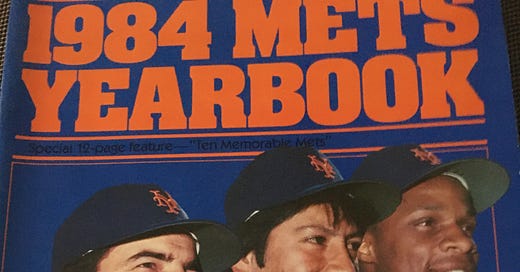



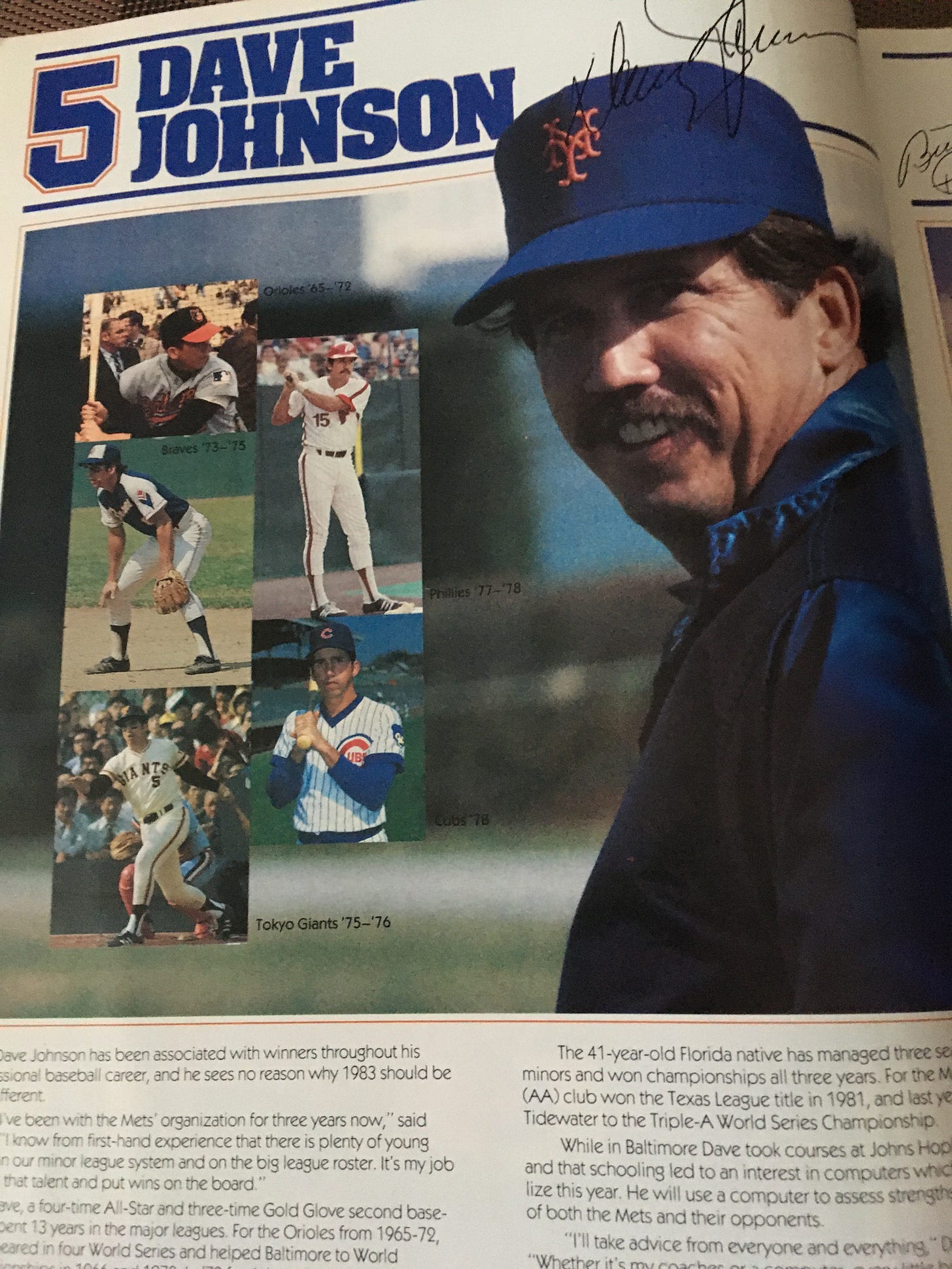
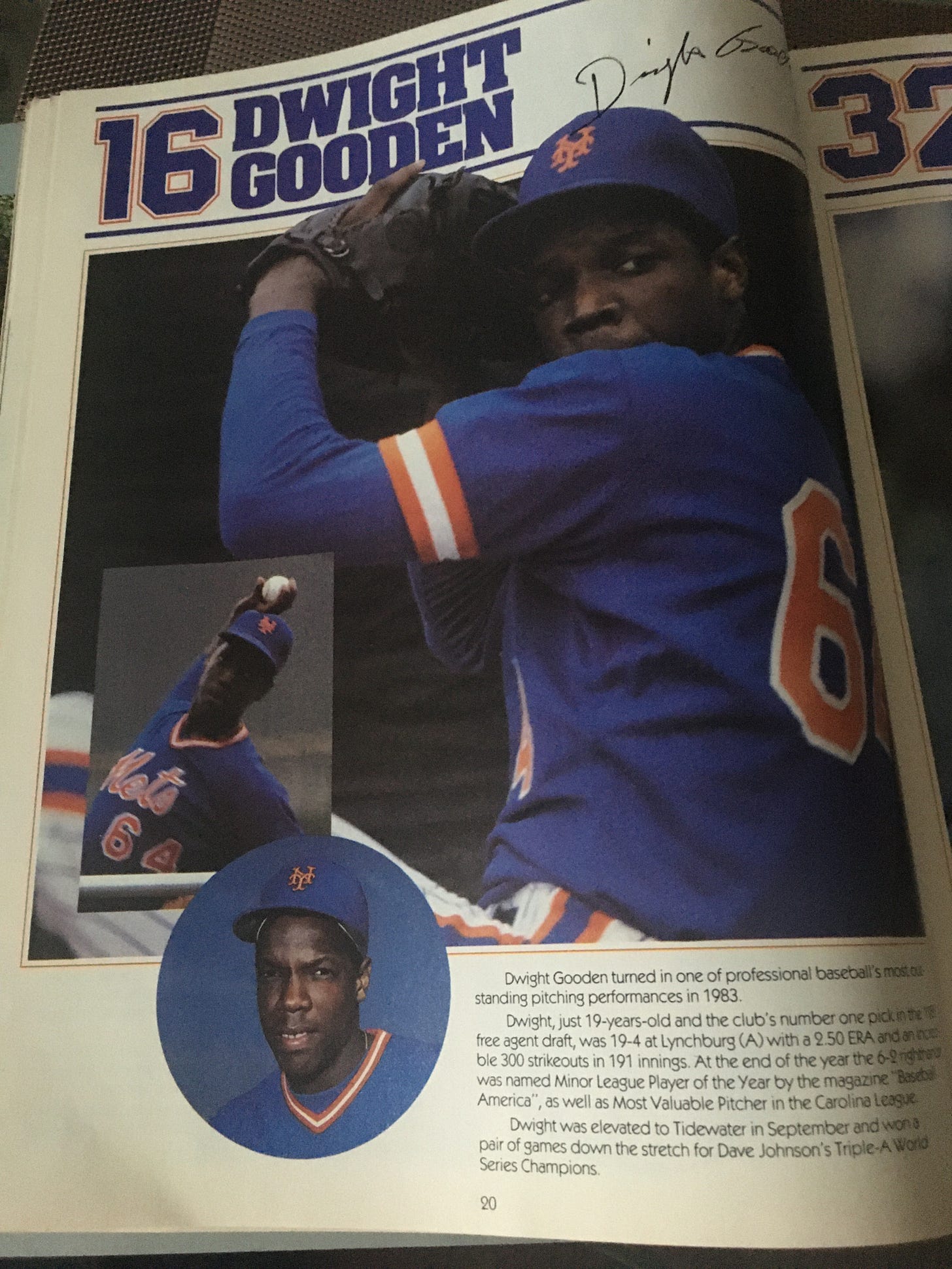
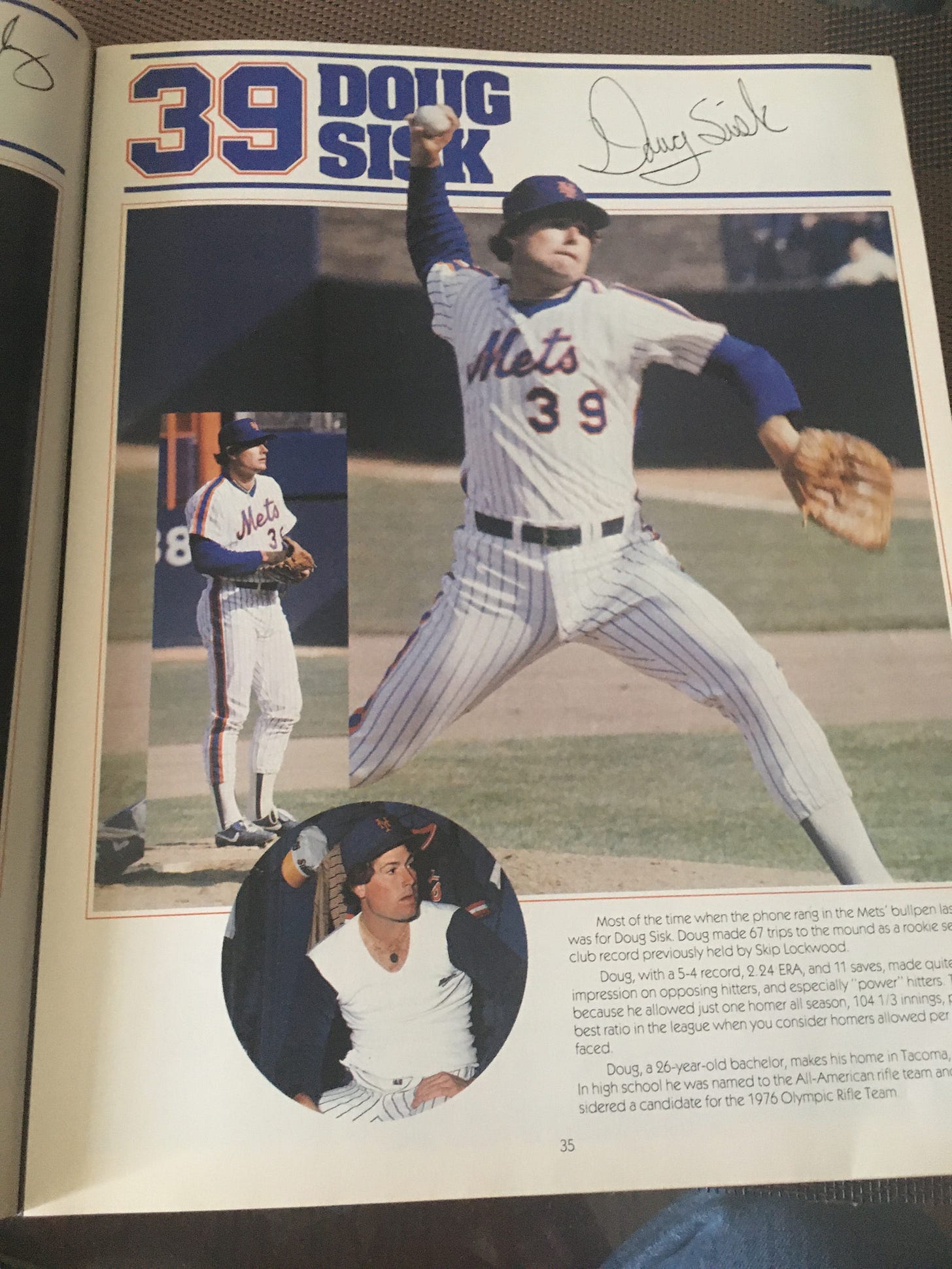
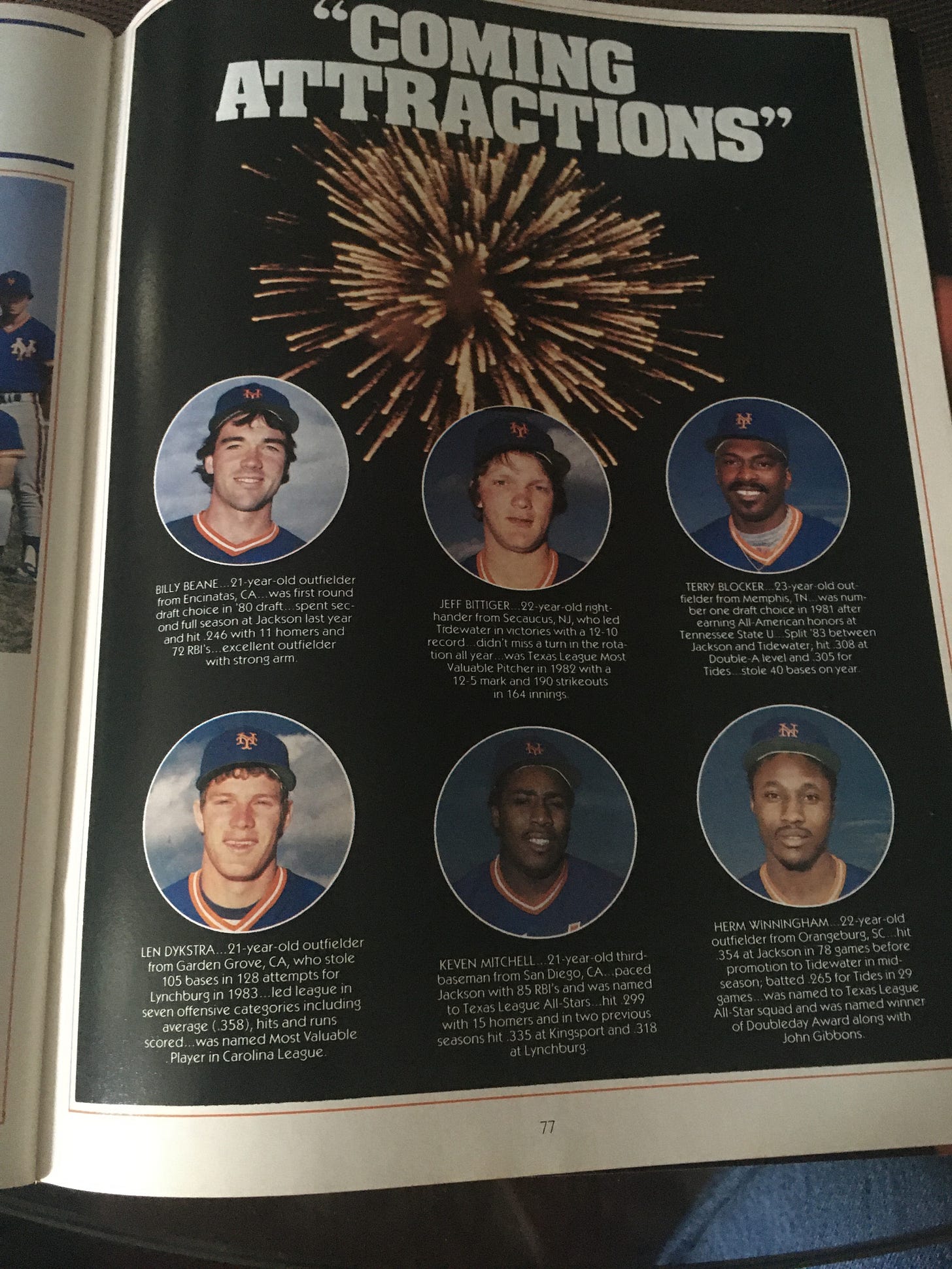
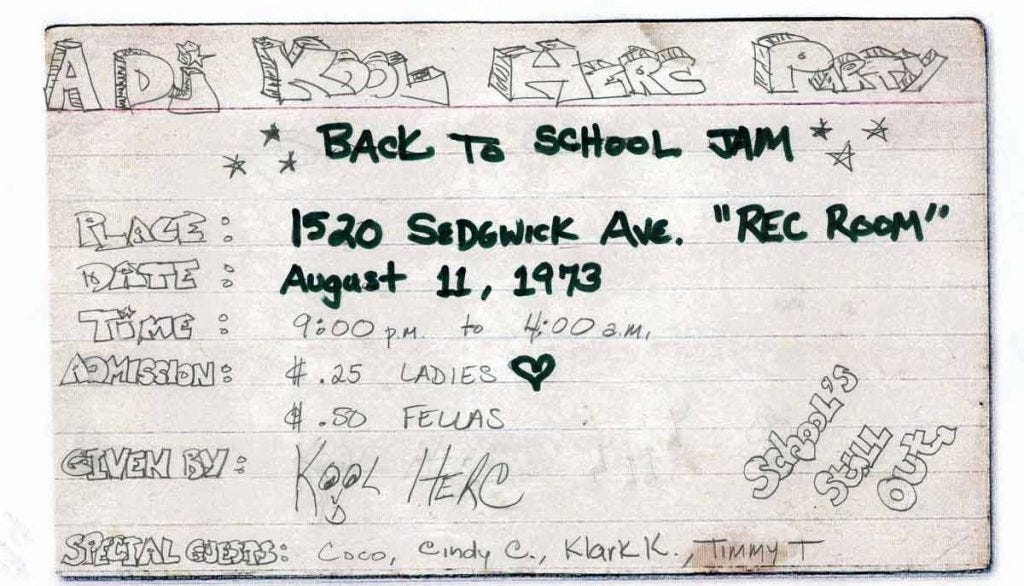
I recall me and some buddies referring to Doug Sisk as Doug Risk. That's some Algonquin Round Table-level wit!
And as a Bronx native it's always been a point of pride that Hip Hop started in my little corner of the universe. Random thought...despite being very different musical styles, I think Hip Hop and rap some shared DNA. Both genres were started and perpetuated by people who, while not being great musicians in a traditional sense, had a creative spirit and something to say. 3 chords or 2 turntables and a microphone, either way we're all the better for it.